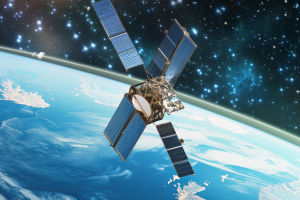Rockets are more than just machines that send astronauts to space—they are gateways to the unknown! Whether we are dreaming about visiting other planets or just fascinated by how they work, rockets hold an undeniable charm.
Today, we are going to explore 10 unusual and mind-blowing facts about rockets that we bet you didn't know. These fun facts will take you on a journey through space, showing just how amazing and complex rockets really are!
Fun Facts About Rocket
Video by floydbishop
1. The First Rocket Was Just a Firework
Did you know that the very first rockets were not designed for space at all? The first "rockets" were actually just large fireworks used in ancient China around the 9th century. They were made by filling tubes with black powder and lighting them to create explosions. These early rockets eventually evolved into the powerful machines we know today.
2. Rocket Fuel is Very Powerful
The fuel that rockets use is incredibly strong! In fact, rocket fuel has to be powerful enough to lift the entire rocket off the ground and into space. While most vehicles rely on engines powered by regular gasoline, rockets use a special kind of fuel that burns at much higher temperatures and produces huge amounts of energy to break free of Earth's gravity.
3. Rockets Can Travel Faster Than a Speeding Bullet
Rockets are some of the fastest vehicles in the world. When they blast off, they can reach speeds faster than a speeding bullet! For example, the Saturn V rocket, used during the Apollo missions to the Moon, could travel at speeds up to 25,000 miles per hour! That's incredible, especially when we think about how long it takes for us to drive a car or bike just a few miles!
4. The Longest Rocket Flight Was Over 5 Hours
While rockets are known for their quick take-offs, did you know that the longest rocket flight lasted over five hours? The X-15 rocket plane, launched by NASA, reached altitudes above 50 miles and had a flight time of over five hours. Imagine being in a rocket flying for more than five hours—what an adventure that must have been!
5. Space Rockets Can Be Recycled
Rockets were once thought of as disposable—once they went up, they would fall back to Earth and get destroyed. But now, thanks to companies like SpaceX, rockets can be recycled! SpaceX's Falcon 9 rocket can land back on Earth after launching, and it's used again for future missions. This helps save money and makes space travel more sustainable.
6. The Largest Rocket is Taller Than the Statue of Liberty
The Saturn V rocket, which was used during the Apollo missions to send astronauts to the Moon, is so tall it would easily tower over the Statue of Liberty. Standing at 363 feet (111 meters), it's taller than a 36-story building! Imagine looking up and seeing something that big—no wonder it was able to send people to the Moon!
7. Rockets Have Their Own "Roads" in Space
When rockets travel through space, they don't just float around aimlessly. Space agencies calculate very specific “paths” for rockets to take to avoid any collisions with other objects in space. These “roads” help guide rockets to their destinations, whether it's the Moon, Mars, or beyond!
8. Rocket Launches Are Super Loud
Ever wonder how loud rocket launches are? Well, rocket engines produce noise levels so loud that they can actually cause damage to the surrounding areas. At the launch site, special precautions are taken to protect the environment and equipment from the intense noise. Rockets can be heard from miles away when they take off!
9. Some Rockets Are Powered by Sunlight
Not all rockets use traditional fuel! Some rockets and spacecraft are powered by the sun. These rockets use solar panels that collect sunlight and convert it into energy to power the rocket's systems. While these rockets are slower than traditional ones, they can travel long distances in space, making them ideal for missions to distant planets or asteroids.
10. Rockets Can Help Us Understand Other Planets
Rockets don't just take humans to space—they also help us learn about other planets! Many rockets carry special probes and satellites into space, which gather data about distant planets, moons, and even the stars. Thanks to rockets, we have learned so much about our solar system and beyond, and we are still discovering new things every day.
Conclusion: Rockets Are Amazing!
Rockets are truly amazing machines that help us explore the wonders of space. From their ancient beginnings as fireworks to their incredible speed and power today, rockets have come a long way. Whether we are traveling to the Moon or studying the stars, rockets play a crucial role in our quest to understand the universe. So next time you look up at the sky, just remember—rockets are the ones that helped us get there!


